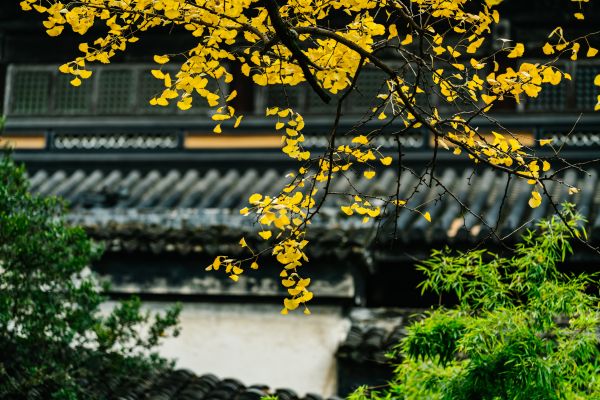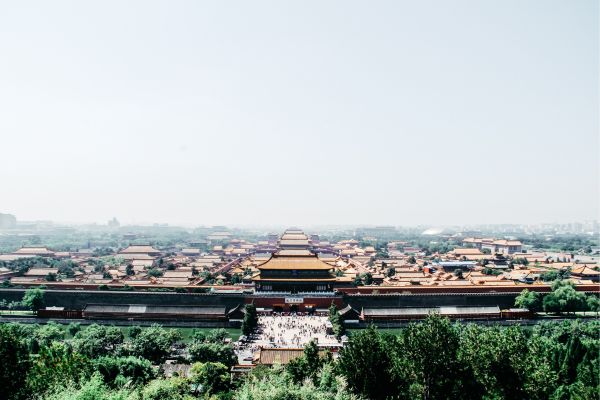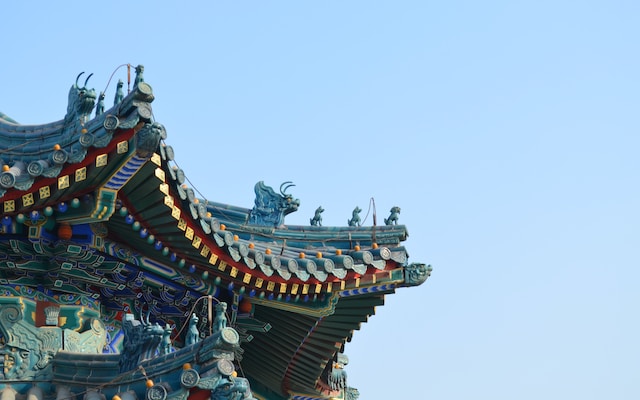
We believe that China’s Supreme People's Court (SPC) has a strong desire to break the deadlock between China and Japan arising out of the mutual refusal to recognize and enforce each other’s court judgments, as evidenced by the fact that Chinese courts have recognized the US judgments and the Korean judgments one after another. But the further question is: how to break this deadlock?
1. Deadlock between China and Japan
In 1995, Gomi Akira, a Japanese citizen (Japanese: 五味晃) applied to the Dalian Intermediate People's Court ("Dalian Court") for recognition and enforcement of the monetary judgment made by the Odawara Branch of the Yokohama District Court in Japan (Japanese: 横浜地方裁判所小田原支部) (hereinafter referred to as the “Gomi Akira case”). The Dalian court’s superior court, the High People’s Court of Liaoning Province, referred this case to the SPC for further guidance. The SPC replied that China and Japan have not yet concluded or acceded to any relevant treaty and has not established reciprocity, and the application for recognition and enforcement of the Japanese court judgment should, therefore, be denied. Consequently, in accordance with the SPC’s response, the Dalian court rendered a ruling to dismiss the application of recognition and enforcement of the Japanese judgment.
As indicated in our previous post, although the SPC’s response is not legally binding, Chinese local courts will take SPC's viewpoint into serious consideration. In the Gomi Akira case, the SPC opined that only when actual precedents existed demonstrating that the foreign country has previously recognized and enforced Chinese judgments can the reciprocity be regarded to exist between the said country and China. As Japan has no such precedent before, so the reciprocity between China and Japan has not yet been established. Based on such rationale, some of Chinese local courts have refused to recognize and enforce a variety of foreign judgments.
Moreover, the Gomi Akira case also directly exerted a negative impact on Japanese courts’ attitude towards application for recognition and enforcement of Chinese judgments. In the case of Chinese citizens’ application for recognition and enforcement of the judgment made by Qingdao Intermediate People’s Court, the Osaka High Court (Japanese:大阪高等裁判所) cited the Gomi Akira case and held that there was no mutual warranty (reciprocity) on recognition and enforcement of judgment between China and Japan, and thus refused to recognize the said Chinese judgment. In 2015, in the case of Xia Shuqin (夏淑琴)’s application to recognize and enforce the judgment made by the Xuanwu Primary People’s Court of Nanjing Municipality (referred to as the“ Xia Shuqin Case”), the Tokyo High Court (Japanese:東京高等裁判所) also cited the Gomi Akira case and refused to recognize and enforce the Chinese judgment.
Chinese judges have already paid attention to these two Japanese courts decisions, such as Chen Liang (陈亮) and Jiang Xin (姜欣), two judges of the Nanjing Intermediate People's Court of Jiangsu Province[1]. Judge Jiang Xin is the judge hearing the case of Kolmar Group AG's application for recognition and enforcement of a Singapore court judgment. In this case, it’s the first time for China to recognize and enforce a foreign judgment on the grounds of reciprocity. Shen Hongyu (沈红雨), a judge of the SPC, also mentioned such case in her articles[2], and expressed her view explicitly that the Gomi Akira case led to the further refusal of Japanese courts to recognize Chinese court decisions on the grounds of reciprocity, as in the Xia Shuqin case. As a result, Judge Shen believes that in the larger context of the Belt and Road Initiative, it is necessary for Chinese courts to reasonably determine the applicable standards of the reciprocity principle, thereby promoting international cooperation in cross-border recognition and enforcement of court judgments.
It can be seen that, as implicitly stated by these Chinese judges, at present, the Chinese courts actually regret the unexpected misunderstanding of foreign courts caused by this case. However, they did not suggest that the SPC would better revise its response to the Gomi Akira case, which we believe is understandable since the SPC's opinion on the case is only in the form of a “response” (答复) rather than a “reply” (批复). The former is theoretically not binding on all local courts, while the latter is a legally binding judicial interpretation. The Japanese professor, Yasuhiro Okuda also noticed this and pointed out that the SPC’s response in 1995 is
“mandatory for the case pending before the High People’s Court of Liaoning Province, but in the future the SPC can reach a different conclusion for other cases."[3]
Therefore, we believe that the SPC is currently eager to adopt a certain way to resolve the stalemate between China and Japan caused by the Gomi Akira case.
2. How can China and Japan resolve the stalemate?
We can infer possible options from the judicial interpretation that the SPC is drafting.
The SPC is currently working on a judicial interpretation of the recognition and enforcement of foreign judgments, which will be promulgated in 2019 according to its plan. We have previously introduced an article written by Song Jianli (宋建立), a judge of the SPC, in which he mentioned several important provisions of the draft judicial interpretation.
According to Judge Song, Chinese courts will adopt three standards to determine whether reciprocity is established between China and the foreign country:
- De facto reciprocity: the foreign court has a precedent for the recognition of a Chinese judgment;
- Presumptive reciprocity: the foreign court had not refused to recognize or enforce Chinese judgments on the ground of lack of reciprocity;
- De jure reciprocity: according to the laws of the State of the forum, a Chinese judgment may, under the same circumstances, be recognized and enforced by the foreign court.
Since Japanese courts have refused to recognize Chinese court judgments, it is difficult for Chinese courts to determine the establishment of reciprocity between China and Japan on the grounds of presumptive reciprocity and to recognize the Japanese judgment accordingly. Therefore, we can consider urging Chinese courts to recognize Japanese judgments on the grounds of de facto reciprocity or de jure reciprocity.
Option A: To resolve the stalemate based on de facto reciprocity (Japan firstly to recognize and enforce Chinese judgment)
If we wish Chinese courts to recognize a Japanese court judgment on the grounds of de facto reciprocity, then the necessary premise is that the Japanese court has recognized and enforced the Chinese court judgment before. As a result, if the Japanese court understands the SPC's efforts in recognizing foreign judgments and its attitudinal changes, and accordingly recognizes a judgment of the Chinese court, then the Chinese court can conclude that reciprocity does exist between China and Japan on this ground. Moreover, if the Chinese court subsequently recognizes a Japanese court decision in practice, it can produce a positive signal to the Japanese court. At this point, the deadlock between China and Japan will be completely broken.
This approach requires Japanese courts’ confidence in the Chinese courts and also an actual case.
Option B: To resolve the stalemate based on de jure reciprocity (China firstly to recognize a Japanese judgment)
If the Chinese court believes that the Chinese judgment can be recognized and enforced in Japan according to Japanese laws (even if it has actually been refused to be recognized and enforced before), then the Chinese court can also recognize the Japanese judgment. As far as we know, Japan has loosened the criteria to determine the reciprocity. Except for the refusal to recognize Chinese court decisions because of the Gomi Akira case, Japan has scarcely refused to recognize the judgments of other countries on the grounds of reciprocity. Therefore, theoretically speaking, Chinese courts may take the first step on the grounds of de jure reciprocity and unilaterally recognize the Japanese judgments first.
This approach requires Chinese courts to “ignore” the precedents where Japan refused to recognize Chinese judgments. For the time being, the attitude of Chinese courts in this regard is very pragmatic, so the possibility exists. Of course, this also requires an actual case.
Option C: the SPC and the Supreme Court of Japan to sign a memorandum
The SPC and the ASEAN have reached a consensus on the recognition and enforcement of court judgments in the form of a forum statement (the Nanning Statement). The SPC and the Supreme Court of Singapore have just signed a memorandum concerning mutual recognition and enforcement of judgments. If the SPC and the Supreme Court of Japan can also sign a similar memorandum, it will be the most effective way to resolve the deadlock between the two countries.
Considering that such a statement or memorandum does not constitute an international treaty, the SPC has sufficient authority to sign such a document. In fact, this is one of the reasons why the SPC has recently been keen to sign similar documents.
3. Conclusion
We believe that the SPC is willing and enthusiastic enough to resolve the stalemate between China and Japan in mutual recognition and enforcement of court judgments. We speculate that Japanese courts might have similar wishes. After all, China and Japan are one of each other's most important trading partners.
The key point now is: is there enough mutual trust between Chinese courts and Japanese courts, and which method is the most feasible to break the deadlock?
Perhaps we can try to test the attitude of a Chinese court or a Japanese court in an actual case.
Notes:
[1] 陈亮,姜欣.承认和执行外国法院判决中互惠原则的现状、影响与改进——从以色列承认和执行南通中院判决案出发[J].法律适用,2018(05):16-23.
[2] 沈红雨.外国民商事判决承认和执行若干疑难问题研究[J].法律适用,2018(05):9-15.
[3] Okuda, Yasuhiro. "Unconstitutionality of Reciprocity Requirement for Recognition and Enforcement of Foreign Judgments in Japan." Frontiers of Law in China 13.2 (2018): 159-170, p. 165.
Contributors: Guodong Du 杜国栋 , Meng Yu 余萌








